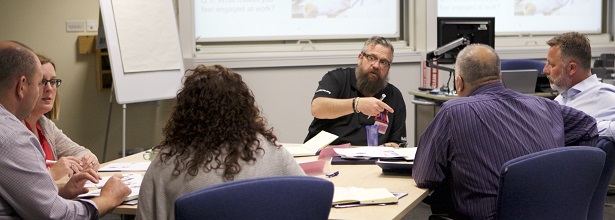
Here at Cranfield Executive Development, we work hard to ensure that our leadership development programmes consistently deliver...
Tags: Cranfield School of Management, leadership, featured talent,

A generation ago when successful people reached the top of their business they were eyeing retirement. Golf and spa retreats. Now...
Tags: Cranfield School of Management, featured learning, learning,

Standard leadership development programmes stay above the shoulders, and that’s the problem. They’re often focused primarily on...
Tags: Cranfield School of Management, featured learning, learning,

There are many practical reasons why we spend our working lives in offices, meeting and conference rooms, but it doesn’t mean...
Tags: Cranfield School of Management, featured learning, learning,

I was chatting to a fellow runner recently, while on our regular 5km route, about my work in helping individuals switch jobs....
Tags: Cranfield School of Management, featured learning, learning,

Business success is a cycle that justifies itself. Having the skills and determination to deliver success is all that seems...
Tags: Cranfield School of Management, featured learning, learning,

Tags: Cranfield School of Management, leadership, featured talent,

Tags: Cranfield School of Management, leadership, featured talent,

Dr Toby Thompson, Networked Learning Director in the Learning Design and Innovation group at Cranfield University, explains how...
Tags: Cranfield School of Management, featured learning, featured talent,

In a paper published in leading academic journal, Human Resource Management Journal, Cranfield School of Management expert,...
Tags: Cranfield School of Management, featured talent, featured sidebar talent,